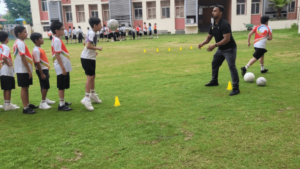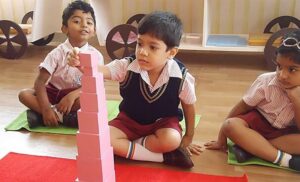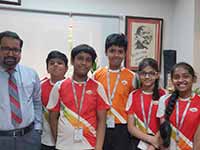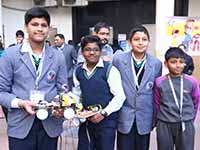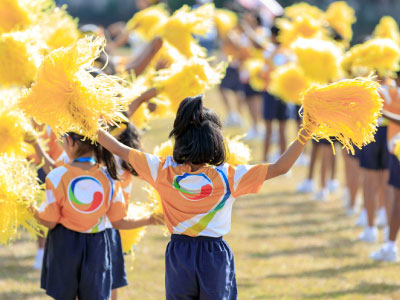Do you ever wonder how you can make your students curious? Encouraging students’ curiosity is not enough to ask questions; we need strategies that will ignite their desire for knowledge.
Curiosity is a vital catalyst for academic achievement and personal growth. When nurtured, it drives deeper understanding and increases engagement across all disciplines. As such, it has been found through studies that curiosity along with intelligence and effort can greatly affect learning outcomes in terms of grades or scores attained.
Want some ideas on how best to develop this essential quality among your learners? Read on as we discuss evidence-based methods applicable in real-world settings.
Igniting Curiosity in the Learning Process
To spark curiosity among students, one must create an atmosphere where they are encouraged to explore and ask questions. Here is what you can do:
- Promote Inquiry
At international curriculum schools in Noida, teachers emphasise inquiry-based learning. This method involves encouraging students to ask questions about the subject matter being taught and then finding answers through research or experiments.
Projects could be given which require learners to investigate various aspects of a topic; this engages their minds actively as well as critical thinking skills since they have to analyse data collected before arriving at conclusions based on factual evidence obtained from reliable sources only.
- Show Enthusiasm
Teachers’ passion for the subjects they teach can infectiously spread into the classroom creating an environment conducive for discovery. If a teacher loves history, he/she may tell stories dramatically while describing ancient civilizations which will captivate learners’ attention making them want more information about the past hence increasing comprehension levels too.
This approach also helps foster positive attitudes towards learning because when students see how much fun their teachers derive from teaching different things, they become interested in themselves even if initially disinterested. Thus developing life-long curiosity necessary for successful completion of formal education system stages.
- Interactive Discussions
When teachers engage students in interactive discussions, it deepens understanding and cultivates curiosity. For example, during a lesson on global warming, the instructor can prompt learners to look at different angles of the problem such as its causes, effects on ecosystems worldwide and socio-economic implications among others.
This method enables them to think critically about what they are taught thereby giving room for expression of opinions based on personal beliefs or values held so far.
It is through these kinds of conversations that individuals learn how best to disagree respectfully while still appreciating other people’s perspectives which may not be similar with theirs at all but equally valid.
- Curiosity Enhances Class Teamwork
Curiosity is a powerful driver for effective teamwork in the classroom. When students are genuinely interested in a topic, they naturally collaborate more intensively, sharing ideas and building on each other’s insights.
This collaboration can be seen in group projects where curious students might explore different solutions to a problem, experiment with new methods, or collectively seek out additional information.
Furthermore, working in teams on engaging projects makes learning more enjoyable, which can further fuel students’ curiosity and drive to learn.
- Embrace Spontaneous Exploration
Encouraging spontaneous exploration can lead to significant learning opportunities:
- Allow time for students to pursue their interests within the curriculum.
- Set up learning stations with various activities related to the lesson.
- Encourage students to ask “what if” questions and explore alternative outcomes.
Adding an element of choice and control can greatly enhance students’ engagement and motivation. By allowing them to steer their learning journey, even partially, students feel more invested in the activity. This autonomy not only boosts their confidence but also enhances their creative thinking skills.
Final Thoughts
Fostering curiosity isn’t just about enhancing academic performance; it’s about preparing students for a lifetime of learning and discovery. GIIS Noida is committed to encouraging students’ curiosity through educational practices that prepare them for the challenges of tomorrow.
Explore how we make this possible by visiting our campus or reaching out for more information. Embrace the journey of curiosity with us, and watch as your child or student transforms into a lifelong learner and inquisitive thinker.






![Importance_of_Moral_Education_in_Primary_Schools[1]](https://giis.deweyolivia.work/noida/wp-content/uploads/sites/27/2024/12/Importance_of_Moral_Education_in_Primary_Schools1-300x169.png)
